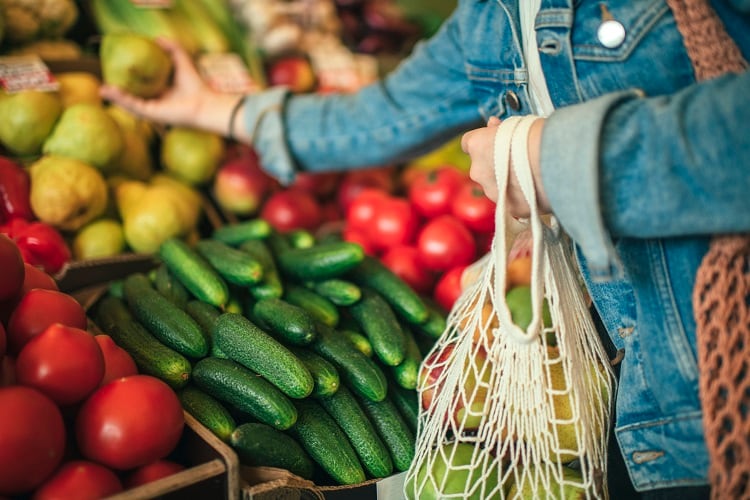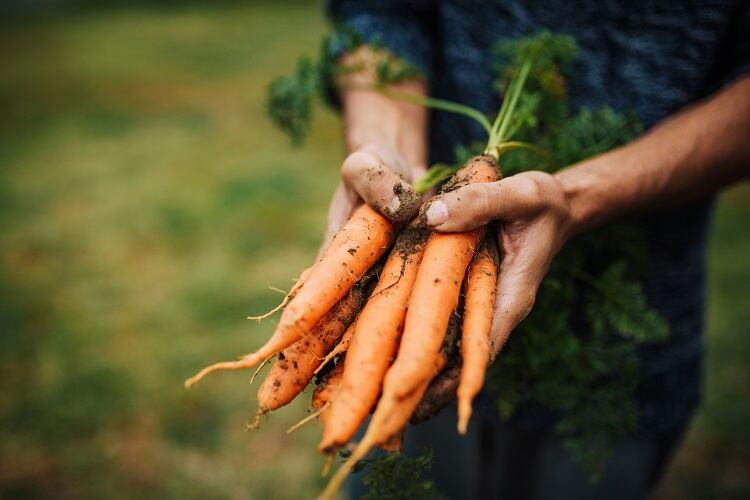The World Wildlife Fund (WWF) is helping people to eat sustainably and to make that sustainability affordable, with the launch of its new campaign, Livewell. How are they doing it? By providing tips and advice on how to create sustainable eating plans, which meet nutritional requirements, while also focusing on food and drinks with a lower carbon footprint. Developed in the United Kingdom, it's been adapted to accommodate geographical, cultural, and market specific factors across different European countries, ensuring it's accessible to all.
“Our food system can provide sustainable, healthy and affordable food for everyone. It all starts with changing the way we produce our food. We can reduce carbon emissions, cut food loss and waste, and restore nature, while at the same time supporting farmers and producers locally and abroad to grow enough food for us all,” Irene Lucius, regional conservation director for WWF-CEE told FoodNavigator.
Top 5 tips for eating sustainably on a budget
- Eat more plants: Enjoy more fruits, vegetables and wholegrains. They’re a great source of fibre, which supports digestive health, and are a great source of vitamins and minerals. Plant-based foods also offer a whole range of environmental benefits such as lower diet-related emissions and reduced water.
- Vary your diet: Eat a variety of different foods. Globally we rely on a small range of foods, with 75% of the global food supply coming from just 12 plant types and five animal species. Dietary monotony is linked to a decline in the diversity of plants and animals used in and around agriculture. This is a threat the resilience of our food systems and limiting to the breadth of food we eat.
- Waste less food: Nearly 570 million tonnes of the global food waste occurs at the household level. This means that we are also throwing away natural resources and money. Avoid food waste in the home by planning your meals and shopping accordingly. Good storing practices can also help ensure food stays fresher for longer.
- Moderate your meat consumption: Enjoy other sources of protein such as mushrooms, peas, beans and nuts. Reliance on animal-based protein sources is putting additional strain on the environment and current agricultural practices are not sustainable in the long term. Increasing consumption of legumes and pulses in a more plant-based diet can compensate for the reduction of protein and vitamins, such as selenium, magnesium and iron, found in animal-based food sources. From an environmental perspective, legumes and pulses are nitrate fixers, which means they naturally replenish the soil with nitrogen, reducing the need for chemical fertilisers.
- Eat certified foods: Be a conscious consumer and find out where your food comes from. Where possible, support businesses that are transparent and produce sustainably for a fair price. There are multiple standards, which will be listed on packaging, to ensure the product is sourced and produced sustainably. Logos to look out for include organic, Rainforest Alliance (for sustainable agriculture), Fairtrade (protecting farmers and workers in developing countries) and Freedom Food (animal welfare).

Why do we need to eat sustainably?
According to the World Health Organization (WHO), climate change, “presents a fundamental threat to human health.” It’s imperative then that we work to prevent and, if possible, reverse environment damage, and changes within the food industry are an essential part of this.
Our global food system is one of the primary drivers of climate change, with agriculture identified as a major threat to biodiversity, impacting 24,000 of the 44,000 species currently at risk of extinction. Food production is not only one of the primary causes of wildlife loss, it is also responsible for approximately a quarter of all greenhouse gas emissions globally. Furthermore, 70% of water is used for agricultural production.
Are governments doing enough to help people to eat sustainably?
Governments have an important role to play in supporting food manufacturers in sustainable food production.
“Healthy, sustainable food should be accessible and affordable for everyone, both now and in the future,” says Lenka Fryčová, sustainability expert at WWF-CEE. “Governments and businesses have a vital role to play in enabling and encouraging a shift to healthy, sustainable diets, especially during today’s cost-of-living crisis.”
“Despite certain initiatives and policy directions, such as the EU's Farm to Fork Strategy, aiming to transition towards sustainable food systems, the current measures fall short of the comprehensive action required to address the crisis of biodiversity loss, and climate change - both directly linked to food production and consumption. The current production and consumption patterns not only exacerbate environmental degradation but also pose severe health risks - this situation calls for immediate and decisive policy interventions,” Anu Suono, EU sustainable farming policy officer for WWF, told FoodNavigator.
However, sustainability is not solely the responsibility of governments and organisations.
“Let’s not forget that every little change matters. We, as individuals, also have the power and responsibility to contribute to this shift. There is no need for anyone to take drastic steps; what is needed is for large numbers of people to take a series of small steps,” adds Fryčová.





